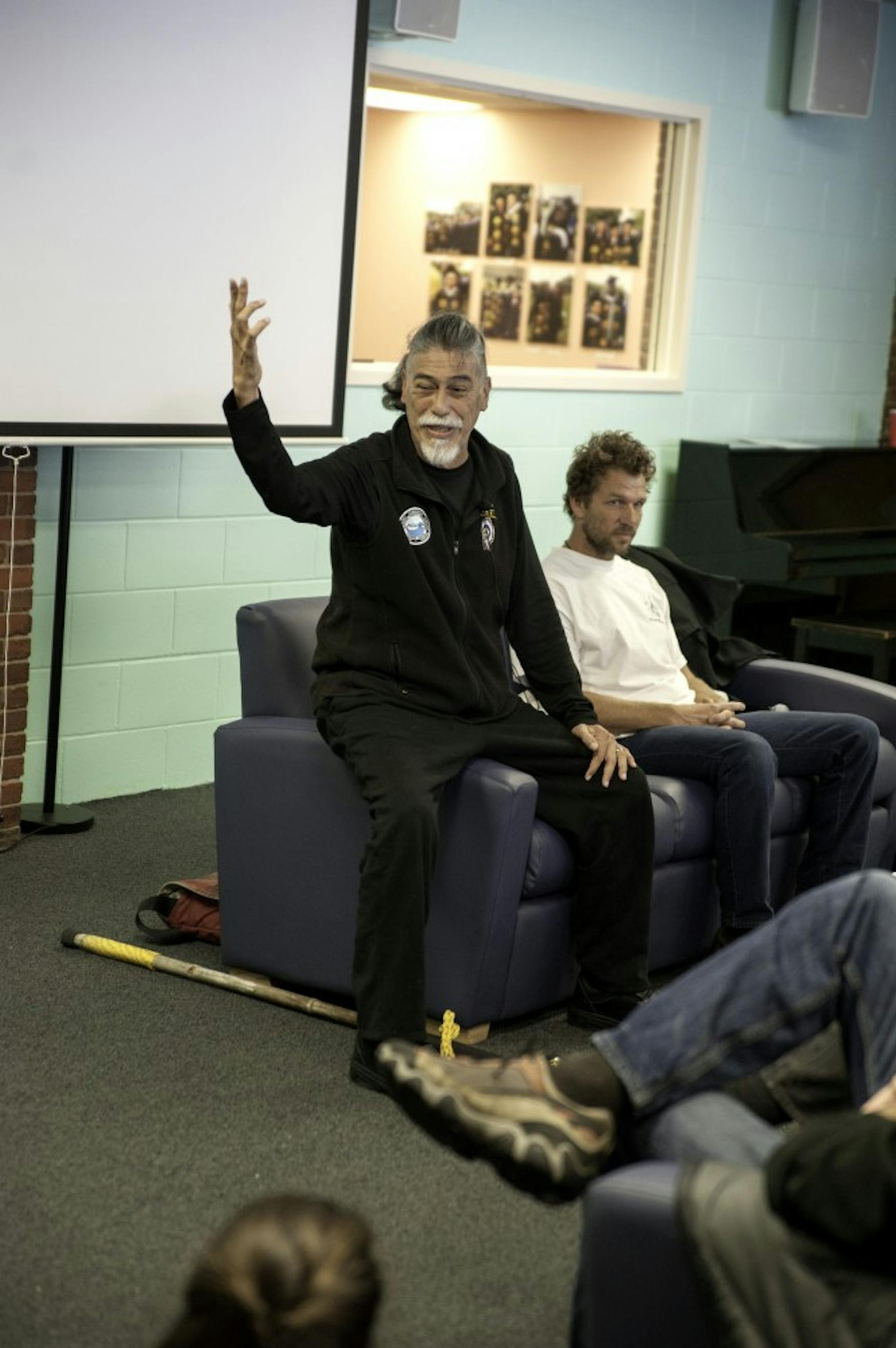Stories for the Ages
A conversation with Rev. M. K. Souza about the rights of indigenous people
A word in the Hawaiian language, kupuna, often means an elder, grandparent or older individual. However, it takes on at least three more meanings: the source or process of personal growth, an honored elder who has the life experience needed to be a family and community leader, and an ancestor who has the spiritual wisdom and presence to guide people through hardship.
Rev. M. Kalani Souza is one of these kupunas, who, like the term, is more than meets the eye. He is the founding director of the Olohana Foundation; the National Outreach Coordinator for Rural, Tribal and Native Communities for FEMA’s Natural Disaster Preparedness Training Center at the University of Hawaii; a standing member and past steersperson for the Pacific Risk Management Ohana Indigenous Knowledge and Education Working Group; the chairman of the U.S. Geological Survey and Colorado State University’s Climate Science Center’s Indigenous Phenology Network; and a serving member on several Federal Native American efforts.
He is also a gifted storyteller, singer, songwriter, musician, film director and producer, poet, philosopher, priest, political satirist, peacemaker, facilitator, mediator, educator, friend and human, who was gracious enough to visit Brandeis on Jan. 18 to start a dialogue on some of these topics.
Souza started with the idea of failure. He feels that people and institutions tend to not take big enough risks because of the allure of preserving the status quo. He reasoned that since people fail most of the time anyway, they might as well “fail big” because it presents an “opportunity for positive change.” He understands this hesitancy to break the mold — “‘If it ain’t broke, don’t fix it’” — is a good starting point to tackle many of the problems we face today. “I’m not sure where the ‘broke’ is — probably in my bank account,” he teased, “but there’s this sense that something is amiss and that we’re missing something.”
He transitioned into a discussion about indigenous people, lamenting how they have struggled for thousands of years to survive in a hostile world. He explained how they include not merely people in North, Central and South America, but the rest of the continents as well, recalling that early definitions of “indigenous” defined it as “naturally occuring in any locations.” Pacific Islanders, for example, have been arguing for their inclusion since 1974 — “I know. I was doing the arguing.” He worries now that the political world is trying to marginalize what it means to be indigenous, and that power dynamics might shape these definitions by limiting expression.
In dealing with disagreement, he is unsure if two people can really look at an issue exactly the same way given their different upbringings, and so he supports everyone’s right to believe what they want, even if it’s wrong. “They have every right to expect their place at the table,” he said. “They just don’t get to own the table. They just don’t get to call the menu. And we’re going to decide if we got them with us for after-dinner drinks. That’s a discussion to be had over the appetizers.”
Expanding on this idea of opposing views, Souza reminded the audience of their own subjectivity, in which people may presuppose their thoughts to be objective when they are actually implicitly biased. This can make it difficult to solve problems because people can get so caught up in disagreeing that they lose sight of the goal they both want to reach. “We tend to just draw the line in the wrong place,” he explained. “We tend to draw it between the two of us, which sets up an immediate relationship.”
To reconcile this inability to be truly objective, he suggested people ask for transparency instead of objectivity when conversing. He explained that drawing the line between the people and the problem, rather than between the people involved, fosters collaboration rather than confrontation. He related it to an analogy his grandfather used to use, where somebody is walking along the beach when they see something wash ashore. If they find it useful, they can pocket it; otherwise, they should leave it behind because it may be meant for someone else.
He proposed three general rules to sum up what he cares about when approaching this kind of conversation. First, he wants the children to be fed, which requires certain infrastructure and resources. Second, he wants the elderly to be comfortable, which requires “a society that can care for those that are less able to care for themselves.” Third, and most important to him, he does not want women live in fear, believing that “when women in a society are unafraid, they tend to tend to the first two things [caring for the disadvantaged and feeding the children].”
The last question Souza received was about how he can continually support putting complex issues into a family context, given that many individuals can never return home because their identities have been denied by their families. He reflected on this question for a few moments, before responding “We have the family we are born to, and then we have the family we choose, and then we have the family that is family to us all.”



Please note All comments are eligible for publication in The Justice.